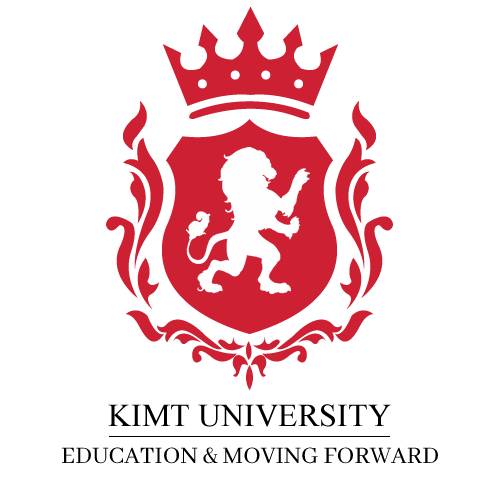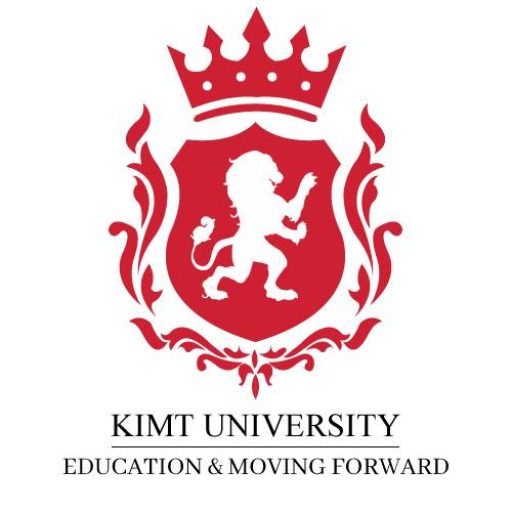
Entry Requirements
Bachelor or equivalent
Study Mode
Online
Duration
1 year (Regular)/6 months (Fast track)
Timetable
Various
Key Features & Benefits
- Comprehensive Curriculum:Covers advanced topics in digital learning, educational technology, and data analytics.
- Global Standards:Aligned with international frameworks and best practices in digital education and learning analytics.
- Practical Application:Emphasizes real-world projects, case studies, and simulations to enhance practical skills.
- Research-Oriented Approach:Includes a 12-credit thesis project to develop advanced research and analytical skills.
- Industry-Relevant Focus:Prepares students for leadership roles in education, corporate training, and EdTech industries.
- Flexible Learning:100% online format designed for working professionals.
The Master of Science in Digital Learning and Analysis (MSc Digital Learning and Analysis) program, conducted and awarded by KIMT University, is designed to equip students with advanced knowledge and skills in the intersection of education, technology, and data analytics. The program emphasizes the use of digital tools, learning analytics, and data-driven strategies to enhance educational outcomes, optimize learning environments, and drive innovation in education. Students will develop competencies in instructional design, educational technology, data analysis, and the application of artificial intelligence (AI) in learning systems.
Graduates of the MSc Digital Learning and Analysis program will be prepared for leadership roles in educational technology, learning analytics, instructional design, and data-driven decision-making in education and corporate training sectors.
Upon successful completion of the program, graduates will be able to:
- Design and implement innovative digital learning solutions using cutting-edge technologies.
- Analyze and interpret educational data to improve learning outcomes and instructional strategies.
- Develop and evaluate data-driven policies and interventions for educational institutions.
- Apply AI and machine learning techniques to personalize and enhance learning experiences.
- Lead and manage digital transformation initiatives in educational and corporate settings.
- Communicate data-driven insights effectively to diverse stakeholders.
- Foster a culture of innovation and continuous improvement in digital learning environments.
- Applicants must hold a bachelor’s degree in education, computer science, information technology, psychology, or a related field.
- Relevant professional experience in education, instructional design, or data analysis (preferred but not mandatory).
- Applicants with a Postgraduate Diploma or equivalent (Level 7 at RQF Level) in a related field may be considered for advanced standing under the Recognition of Prior Learning (RPL) policy. Such applicants must have completed a minimum of 60 credits at an advanced level and provide supporting documentation.
The MSc Digital Learning and Analysis program consists of 90 credits, divided into core courses and a thesis. Each course is worth 6 credits, while the thesis accounts for 12 credits. The course structure is as follows:
Summary of Courses
- Core Courses: 13 courses (78 credits)
- Capstone Thesis: 1 project (12 credits)
What you will Study
- Foundations of Digital Learning
- Learning Analytics and Data Visualization
- Instructional Design for Digital Learning
- Educational Technology and Tools
- Artificial Intelligence in Education
- Big Data and Machine Learning for Education
- Gamification and Immersive Learning
- Digital Assessment and Evaluation
- Ethics and Privacy in Digital Learning
- Leadership and Change Management in Education
- Personalized and Adaptive Learning Systems
- Global Trends in Digital Education
- Research Methods in Digital Learning
- Thesis Research Project
To successfully complete the MSc Digital Learning and Analysis, students are expected to:
- Dedicate approximately 15-20 hours per week to coursework, including readings, assignments, and discussions.
- Actively participate in online forums, webinars, and collaborative projects.
- Complete all assignments, exams, and the capstone project within the stipulated deadlines.
- Maintain regular communication with faculty and peers to enhance learning outcomes.
- Exhibit strong self-discipline and time-management skills to balance studies with other commitments.
- 90% Assignments
- 10% Presentation and viva
- At the end of the program each student also submits a research project paper
All of the following items must be submitted on or before the application closing date. They may be submitted online.
- CV (maximum 2 pages).
- Passport size photograph
- A personal statement of approximately 350 – 400 words. The statement should focus on the applicant’s interest in digital learning and analysis, how the program will impact their career, and how they plan to balance work, life, and study commitments.
- Copies of bachelor certificate (or equivalent) or post-graduate certificate diploma or degree parchments, as well as transcripts of associated results.
Students apply to the KIMT online application system. To apply, simply click on and follow the instructions. A non-refundable application fee applies. The application fee is paid online. Further information about applications, contact at admissions@kimtuniversity.com
Request a Follow-Up
Career Opportunities
Graduates of this program will be prepared for leadership roles in areas such as:
- Educational Technology and EdTech(Instructional Designer, Learning Technologist)
- Learning Analytics and Data Science(Learning Analyst, Data Scientist in Education)
- Corporate Training and Development(Training Manager, E-Learning Specialist)
- Academic and Research Roles(Educational Researcher, University Lecturer)
- Policy and Strategy in Education(Education Policy Analyst, Digital Learning Consultant)
- Innovation and Entrepreneurship in EdTech(EdTech Startup Founder, Product Manager)
- AI and Machine Learning in Education(AI Learning Specialist, Adaptive Learning Developer)
The Master of Science in Digital Learning and Analysis (MSc Digital Learning and Analysis) program at KIMT University is designed to meet the highest academic and industry standards, preparing graduates to lead innovation, optimize learning environments, and drive data-driven decision-making in education and beyond.
The program is accredited by



